Related Research Articles

The Berlin Wall was a guarded concrete barrier that divided Berlin from 1961 to 1989. It encircled West Berlin, separating it from East German territory. Construction of the wall was commenced by the German Democratic Republic on 13 August 1961. The Wall cut off West Berlin from surrounding East Germany, including East Berlin. It included guard towers placed along large concrete walls, accompanied by a wide area that contained anti-vehicle trenches, beds of nails and other defenses.

Erich Ernst Paul Honecker was a German communist politician who led the German Democratic Republic from 1971 until shortly before the fall of the Berlin Wall in October 1989. He held the posts of General Secretary of the Socialist Unity Party of Germany (SED) and Chairman of the National Defence Council; in 1976, he replaced Willi Stoph as Chairman of the State Council, the official head of state. As the leader of East Germany, Honecker had close ties to the Soviet Union, which maintained a large army in the country.

Walter Ernst Paul Ulbricht was a German communist politician. Ulbricht played a leading role in the creation of the Weimar-era Communist Party of Germany (KPD) and later in the early development and establishment of the German Democratic Republic. As the First Secretary of the Socialist Unity Party from 1950 to 1971, he was the chief decision-maker in East Germany. From President Wilhelm Pieck's death in 1960 on, he was also the East German head of state until his own death in 1973. As the leader of a significant Communist satellite, Ulbricht had a degree of bargaining power with the Kremlin that he used effectively. For example, he demanded the building of the Berlin Wall in 1961 when the Kremlin was reluctant.
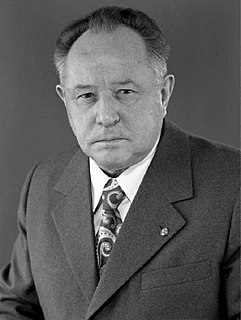
Erich Fritz Emil Mielke was a German communist official who served as head of the East German Ministry for State Security, better known as the Stasi, from 1957 until shortly after the fall of the Berlin Wall in 1989.
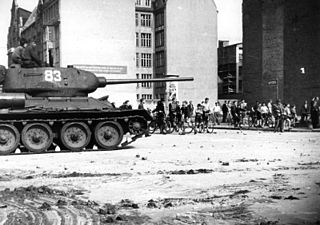
The East German uprising of 1953 was an uprising that occurred in East Germany from 16 to 17 June 1953. It began with a strike action by construction workers in East Berlin on 16 June against work quotas during the Sovietization process in East Germany. Demonstrations in East Berlin turned into a widespread uprising against the Government of East Germany and the Socialist Unity Party the next day, involving over one million people in about 700 localities across the country. Protests against declining living standards and unpopular Sovietization policies led to a wave of strikes and protests that were not easily brought under control and threatened to overthrow the East German government. The uprising in East Berlin was violently suppressed by tanks of the Soviet forces in Germany and the Kasernierte Volkspolizei, while demonstrations continued in over 500 towns and villages for several more days before dying out.

Otto Emil Franz Grotewohl was a German politician who served as the first prime minister of the German Democratic Republic from its foundation in October 1949 until his death in September 1964.

The Vienna summit was a summit meeting held on June 4, 1961, in Vienna, Austria, between President John F. Kennedy of the United States and First Secretary Nikita Khrushchev of the Soviet Union. The leaders of the two superpowers of the Cold War era discussed numerous issues in the relationship between their countries.

Stadion der Weltjugend was a multi-use stadium in the locality of Mitte in the eponymous borough of Mitte in Berlin, Germany. It was inaguruated on 20 May 1950 by the First Secretary of the Socialist Unity Party, Walter Ulbricht for the first "Deutschlandtreffen of the Free German Youth. The stadium was initially named after Walter Ulbricht.
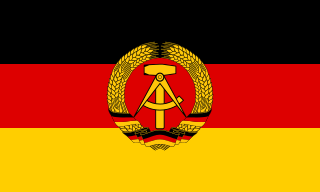
The German Democratic Republic (GDR), German: Deutsche Demokratische Republik (DDR), often known in English as East Germany, existed from 1949 to 1990. It covered the area of the present-day German states of Mecklenburg-Vorpommern, Brandenburg, Berlin, Sachsen, Sachsen-Anhalt, and Thüringen. This area was occupied by the Soviet Union at the end of World War II excluding the former eastern lands annexed by Poland and the Soviet Union, with the remaining German territory to the west occupied by the British, American, and French armies. Following the economic and political unification of the three western occupation zones under a single administration and the establishment of the Federal Republic of Germany in May 1949, the German Democratic Republic was founded on 7 October 1949 as a sovereign nation.

Heinrich Gottlob "Heiner" Rau was a German communist politician during the time of the Weimar Republic; subsequently, during the Spanish Civil War, he was a leading member of the International Brigades and after World War II a leading East German statesman.

Ferdinand Friedensburg was the interim Mayor of Berlin due to the illness of mayor Louise Schroeder during the Berlin Blockade in 1948.

The Berlin Crisis of 1961 occurred between 4 June – 9 November 1961, and was the last major European politico-military incident of the Cold War about the occupational status of the German capital city, Berlin, and of post–World War II Germany. The Berlin Crisis started when the USSR issued an ultimatum demanding the withdrawal of all armed forces from Berlin, including the Western armed forces in West Berlin. The crisis culminated in the city's de facto partition with the East German erection of the Berlin Wall.
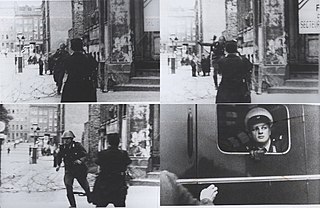
Emigration from the Eastern Bloc was a point of controversy during the Cold War. After World War II, emigration restrictions were imposed by countries in the Eastern Bloc, which consisted of the Soviet Union and its satellite states in Central and Eastern Europe. Legal emigration was in most cases only possible in order to reunite families or to allow members of minority ethnic groups to return to their homelands.

The following events happened in August 1961:
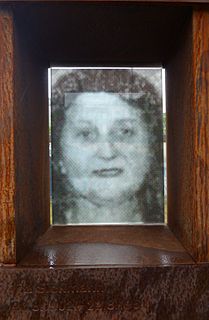
Ida Siekmann was a German nurse who became the first known person to die at the Berlin Wall, only nine days after the beginning of its construction.
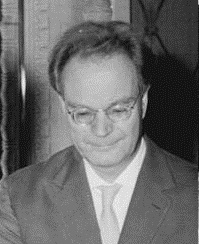
Mikhail Georgievich Pervukhin was a Soviet official during the Stalin Era and Khrushchev Era. He served as a First Deputy Chairman of the Council of Ministers, literally First Vice-Premier of the Soviet Union, from 1955 to 1957.

Pyotr Andreievitch Abrasimov was a Soviet war hero and politician who became a career diplomat. He served his country as ambassador successively in China, France, Poland and East Germany.
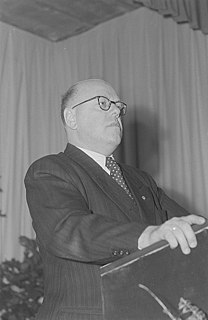
Karl Schirdewan was a German Communist activist who after World War II became a top East German politician.
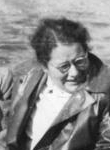
Margarete "Grete" Wittkowski was a German economist and politician. Between 1961 and 1967 she served as deputy chair of the East German Council of Ministers, the only woman ever to hold this post. Between 1967 and 1974, she served as President of the East German National Bank.
Hans Mahle was a German party official, working successively for the Communist Party (KPD), the Socialist Unity Party (SED) and, after being co-opted into its leadership team in 1961, for the Socialist Unity Party of West Berlin. During the Second World War he became a founding member of the Soviet-sponsored National Committee for a Free Germany. As the war ended, on 30 April 1945, he was one of 30 men quietly delivered in a Soviet army truck to Bruchmühle, just outside Berlin, as a member of the so-called “Ulbricht Group”. He was part of the first of the three ten man cohorts, who had been flown across from the east, via Minsk, as far as the Oder, but the final part of the journey was undertaken with greater discretion. The men had arrived from Moscow with a meticulously detailed nation building plan, which would unfold in the Soviet occupation zone over the next few years. In a departure from the original plan, however, on 12 May 1945 Mahle was redeployed to an even more important project for which he was particularly well suited, on account of his wartime experience of radio technology and his talents, recognised and much prized by the Soviet party leadership, for “political education”. The Soviet military mayor-administrator in Berlin, Nikolai Berzarin ordered him to take charge of what became the East German Broadcasting Service. He remained a figure of major political importance in the Soviet occupation zone throughout the rest of the decade. However, by 1950 senior comrades were beginning to distance themselves from him, a clear sign that he was losing the leader's backing. In 1951 he was dismissed from his post on suspicion of espionage. His fall from grace was not as brutal nor as total as he might have feared at the time, and by 1956 he was the beneficiary of a gradual rehabilitation process. He never recovered his former status and influence within the party, however.
References
- ↑ "10 August 1961". www.chronik-der-mauer.de. Retrieved 18 February 2013.
- ↑ Kempe, Frederick (2011). Berlin 1961. Penguin Group (USA). pp. 321–322. ISBN 0-399-15729-8.